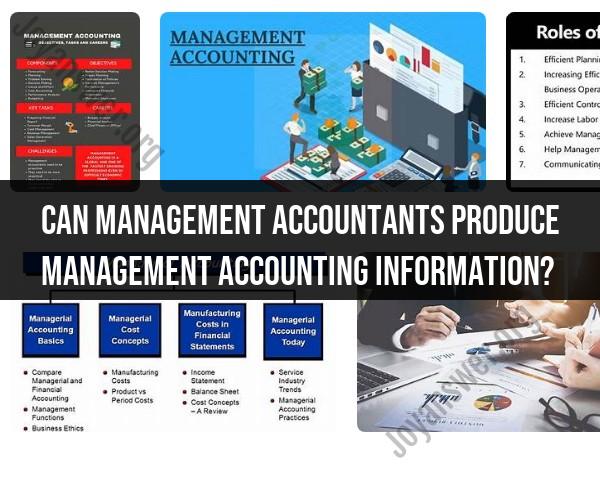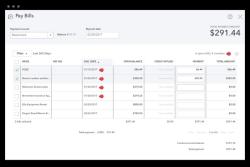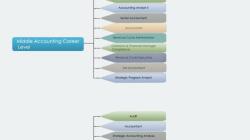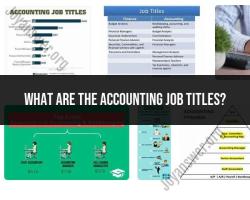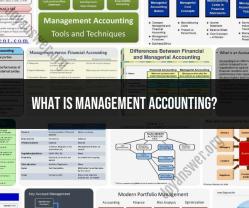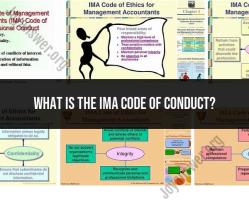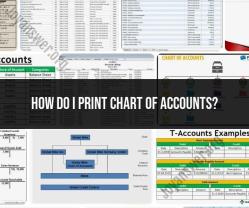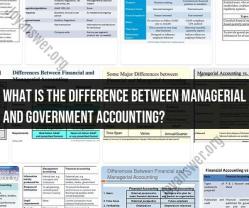Can management accountants produce management accounting information?
Yes, management accountants play a pivotal role in producing management accounting information. Management accounting, often referred to as managerial or cost accounting, is a branch of accounting that focuses on providing financial and non-financial information to support internal decision-making within an organization. Management accountants are responsible for generating and presenting this information to aid in various aspects of management and strategic decision-making. Here's how management accountants produce management accounting information:
Data Collection and Analysis:
- Management accountants collect and analyze financial and operational data from various sources within the organization. This data can include cost information, revenue figures, budget data, production volumes, and more.
Cost Accounting:
- They perform cost accounting functions to determine the costs associated with producing goods or services. This includes tracking direct costs (e.g., materials and labor) and indirect costs (e.g., overhead).
Budgeting and Forecasting:
- Management accountants are responsible for creating budgets and financial forecasts. These documents help in setting financial goals, monitoring performance against those goals, and making necessary adjustments.
Variance Analysis:
- They analyze variances between budgeted and actual results to identify areas where performance deviates from expectations. This analysis informs management about the effectiveness of operations.
Financial Reporting:
- Management accountants prepare internal financial reports that are tailored to the needs of managers and executives. These reports often include data not found in external financial statements and focus on segments of the business.
Performance Measurement:
- They design and implement performance measurement systems, such as key performance indicators (KPIs), to track and evaluate the performance of different departments, projects, or products.
Decision Support:
- Management accountants provide data and analysis to support strategic decisions, including investment decisions, pricing strategies, product discontinuation, and cost reduction initiatives.
Strategic Planning:
- They assist in the development of the organization's long-term strategic plans by providing financial data, cost projections, and sensitivity analyses to evaluate potential scenarios.
Capital Budgeting:
- Management accountants are involved in capital budgeting decisions, helping organizations evaluate and prioritize capital investment projects based on their financial feasibility and potential returns.
Risk Assessment:
- They assess financial and operational risks and suggest strategies for managing or mitigating these risks. This is crucial for decision-making and maintaining financial stability.
Continuous Improvement:
- Management accountants engage in continuous improvement efforts by identifying opportunities to enhance cost-efficiency and operational effectiveness, which can lead to higher profitability.
Strategic Cost Management:
- They implement cost management strategies, such as activity-based costing (ABC), to gain a more accurate understanding of costs and optimize resource allocation.
Environmental Accounting:
- In an era of increasing environmental awareness, management accountants may also provide information related to sustainability and environmental costs to support environmentally responsible decision-making.
The information produced by management accountants is tailored to the specific needs of an organization's management team. It helps leaders make informed decisions, allocate resources effectively, control costs, and improve overall business performance. This internal focus distinguishes management accounting from financial accounting, which is primarily concerned with external reporting and compliance with accounting standards.
Role of Management Accountants in Producing Information
Management accountants play a vital role in producing information that helps businesses make informed decisions. They do this by collecting, analyzing, and interpreting financial data. Management accountants then use this information to create reports and presentations that communicate to business leaders the financial performance of the business and its financial outlook.
Functions and Responsibilities of Management Accountants
Management accountants have a wide range of functions and responsibilities, including:
- Preparing financial statements, such as balance sheets, income statements, and cash flow statements
- Budgeting and forecasting
- Cost accounting
- Performance measurement and analysis
- Financial planning and analysis
- Risk management
- Internal controls
Methods and Tools for Generating Management Accounting Information
Management accountants use a variety of methods and tools to generate management accounting information. Some common methods and tools include:
- Accounting software
- Spreadsheets
- Databases
- Statistical analysis software
- Data visualization tools
Importance of Timely and Accurate Information in Management Accounting
Timely and accurate information is essential for management accounting. This is because business leaders need to have up-to-date information in order to make informed decisions. For example, if a management accountant produces a report that shows that a product is losing money, business leaders can use this information to decide whether to discontinue the product or make changes to improve its profitability.
Case Studies Demonstrating Management Accountants' Impact
Here are a few case studies that demonstrate the impact that management accountants can have on businesses:
- A management accountant at a manufacturing company identified that the company was overpaying for its raw materials. The management accountant negotiated with suppliers to get better prices, which saved the company millions of dollars.
- A management accountant at a retail company helped the company to reduce its inventory costs. The management accountant implemented a new inventory management system that helped the company to better track its inventory levels and avoid overstocking.
- A management accountant at a healthcare company helped the company to improve its patient care. The management accountant analyzed data to identify areas where the company could improve its efficiency and effectiveness. This led to a number of changes that improved the quality of patient care and reduced costs.
These are just a few examples of the many ways that management accountants can make a positive impact on businesses.
Conclusion
Management accountants play a vital role in modern businesses. They produce information that helps businesses make informed decisions and improve their performance. Management accountants are highly skilled professionals who use a variety of methods and tools to generate management accounting information.
